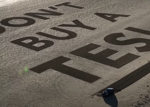The DVLA is to hold a webinar for motor retailers on the changes to vehicle tax.
It will be held on February 22 (sign-up details below).
Helen Jones, a vehicle service designer with the DVLA, said of the changes to Vehicle Excise Duty: “In the 2015 summer budget, the chancellor announced changes to the way in which vehicle tax is calculated for cars and some motor homes registered for the first time on or after 1 April 2017.
“Since then, we have been working closely with groups from the motor industry to help prepare for these changes.
“We have formed an industry steering group and the support of bodies such as the SMMT, RMIF, ACFO and BVRLA has been invaluable.
“Knowing that dealers play a vital role in helping to pass on the message to customers, we have sent out detailed information briefs, specifically for them, and have given presentations to a number of dealer groups.
“We have also set up ‘Basecamp’ – an online forum, and a dedicated email address where manufacturers and dealers can get answers to their questions.”
The changes won’t affect any vehicles that are registered before 1 April.
The key points to understand:
- The ‘first licence rate’ remains, and continues to be based on the vehicle’s CO2 emissions. However, some of the values are changing - the new rates are available on gov.uk
- The second time the vehicle is taxed, there will one of three standard rates to pay. These depend on the vehicle’s fuel type. For normal petrol or diesel vehicles, the rate is £140 per year and for ‘alternative fuel’ vehicles (such as hybrids and bioethanol) it’s £130 per year. Vehicles with zero CO2 emissions – such as fully electric – will have a £0 (zero) rate.
- If the car has a manufacturer’s list price of over £40,000, there is new additional rate of £310 per year – on top of the standard rate. The additional rate and standard rate are paid for five years from the second time the vehicle is taxed. After the five years, the vehicle will be only taxed at the standard rate for that type of vehicle.
DVLA webinar for motor retailers
February 22
9.30 -10.30
https://join-emea.broadcast.skype.com/dvla.onmicrosoft.com/07ca644662004b6fad18b51d13f2f214


















douglas munday - 14/02/2017 15:54
I can understand the change is revenue driven and why this is the case. However, from an environmental standpoint I believe it is a very regressive move, as the drive to build and the incentive to buy eco friendly car will be vastly undermined by the new VED rules. Personally, I have always favoured adding vehicle excise duty to the base cost of fuel, as in my view it is the surest way to reduce pollution and unnecessary vehicle use.I accept this is perhaps an over simplification of what is a huge issue; and I also accept, in part, the counter argument, (that has been propounded on many previous occasions,) that VED on fuel will add to the cost of producing and transporting goods and thus inevitably result in higher prices to the consumer. However, overall, aside from the important environmental issue, such a system would be far fairer as it is a direct reflection on actual usage, rather than a blanket charge that penalises low mileage users and those that buy the most economical and eco friendly vehicles available in the market.